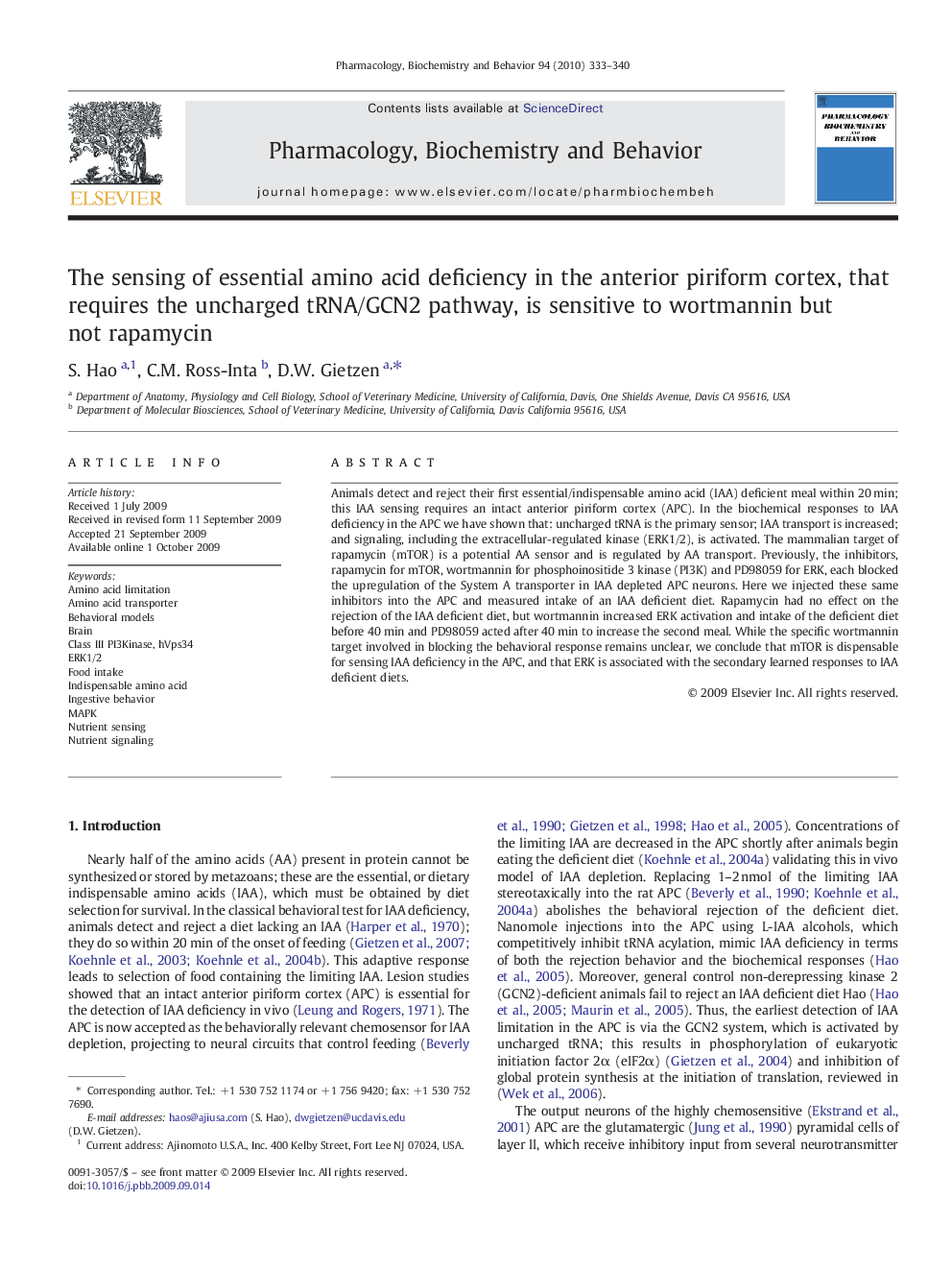| کد مقاله | کد نشریه | سال انتشار | مقاله انگلیسی | نسخه تمام متن |
|---|---|---|---|---|
| 2013176 | 1067098 | 2010 | 8 صفحه PDF | دانلود رایگان |

Animals detect and reject their first essential/indispensable amino acid (IAA) deficient meal within 20 min; this IAA sensing requires an intact anterior piriform cortex (APC). In the biochemical responses to IAA deficiency in the APC we have shown that: uncharged tRNA is the primary sensor; IAA transport is increased; and signaling, including the extracellular-regulated kinase (ERK1/2), is activated. The mammalian target of rapamycin (mTOR) is a potential AA sensor and is regulated by AA transport. Previously, the inhibitors, rapamycin for mTOR, wortmannin for phosphoinositide 3 kinase (PI3K) and PD98059 for ERK, each blocked the upregulation of the System A transporter in IAA depleted APC neurons. Here we injected these same inhibitors into the APC and measured intake of an IAA deficient diet. Rapamycin had no effect on the rejection of the IAA deficient diet, but wortmannin increased ERK activation and intake of the deficient diet before 40 min and PD98059 acted after 40 min to increase the second meal. While the specific wortmannin target involved in blocking the behavioral response remains unclear, we conclude that mTOR is dispensable for sensing IAA deficiency in the APC, and that ERK is associated with the secondary learned responses to IAA deficient diets.
Journal: Pharmacology Biochemistry and Behavior - Volume 94, Issue 3, January 2010, Pages 333–340